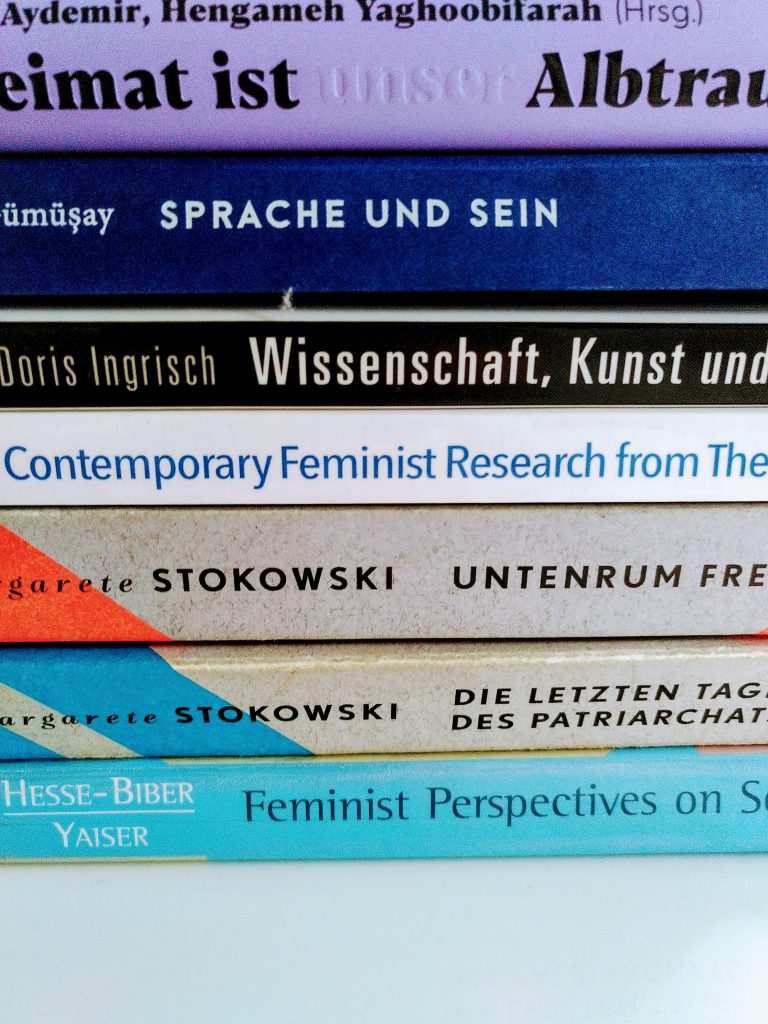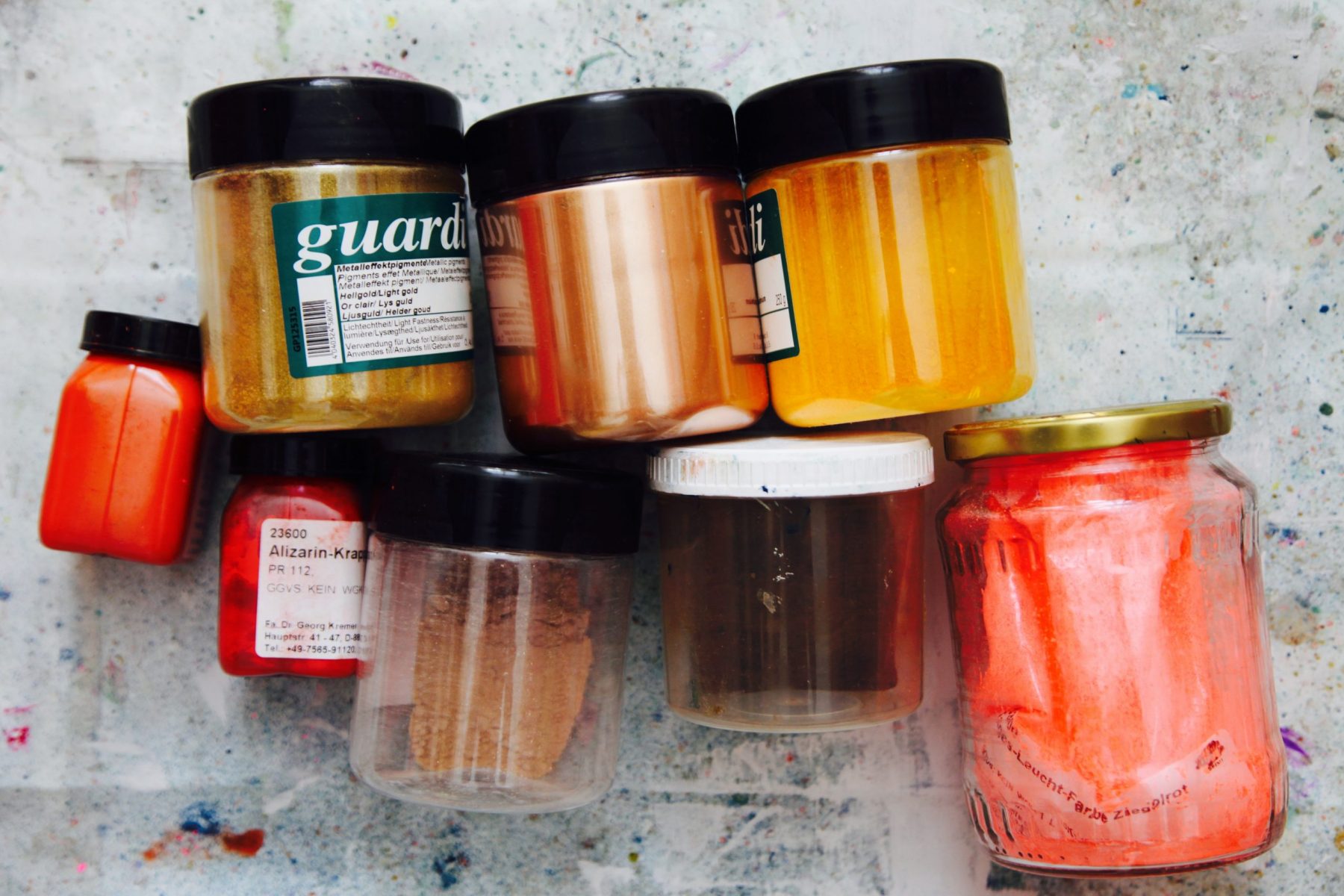In September 2019 I was elected equal opportunities representant of the HKS – University of Applied Sciences and Arts in Ottersberg. I am very pleased about the trust placed in me. Since then – in addition to my position as a research assistant – I have been working on diversity and equality in the university context as well. I am especially grateful for the cooperation with our students of the Equal Opportunities Working Group of our General Students Committee (AStA). You are superb!

intersectionality
Of course, this is not only about the equality of white cis-women, but of all marginalized groups. Our work is based on an intersectional understanding. This means that we work against all forms of discrimination on both individual and structural level – racist, anti-semitic, islam-hostile, ableist, homo-hostile, trans- and inter-hostile or of any other kind.
One difficulty is, of course, that I myself am white. It would be great, if this position could be filled with someone who has a larger wealth of experience in diversity. To make this possible, we need to change academic structures now (Deutsche Forschungsgemeinschaft, 2020; Sow, 2014). They must become fairer and thus more diverse.
guideline fair language now freely accessible
The work shows first results: in cooperation with the student equal opportunities association and the university management, I created a new guideline to fair language, approved by the senate. The document may also be used outside our university or as a suggestion for the creation of your own guidelines.
Our guideline to fair language is in German language, freely available and can be downloaded from the website of our equal opportunities office of the HKS – University of Applied Sciences in Ottersberg. There you will also find all kinds of recommendations for literature, online resources, podcasts and audio books.
- Deutsche Forschungsgemeinschaft, (DFG). (2020). Die „Forschungsorientierten Gleichstellungsstandards“der DFG: Zusammenfassung und Empfehlungen 2020 (p. 40). Retrieved from DFG website: https://www.dfg.de/download/pdf/foerderung/grundlagen_dfg_foerderung/chancengleichheit/fog_empfehlungen_2020.pdf
- Sow, N. (2014). Schwarze Wissensproduktion als angeeignete Profilierungsressource und der systematische Ausschluss von Erfahrungswissen aus Kunst- und Kulturstudien. In Weißsein und Kunst: Neue postkoloniale Analysen. Kunst und Politik: Jahrbuch der Guernica-Gesellschaft (Vol. 17, p. ). Retrieved from https://www.noahsow.de/academic-colonialism
